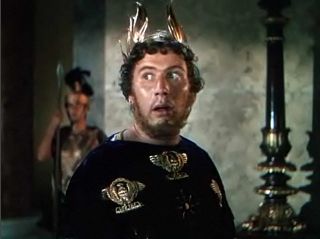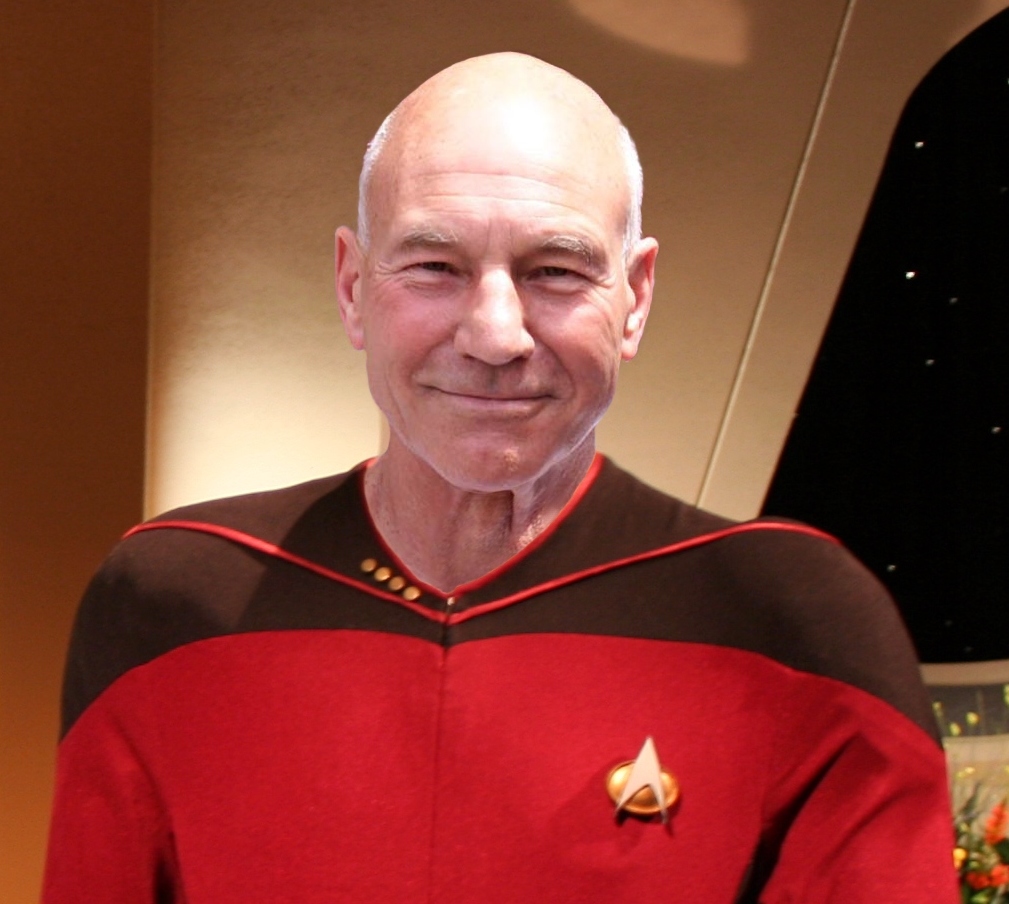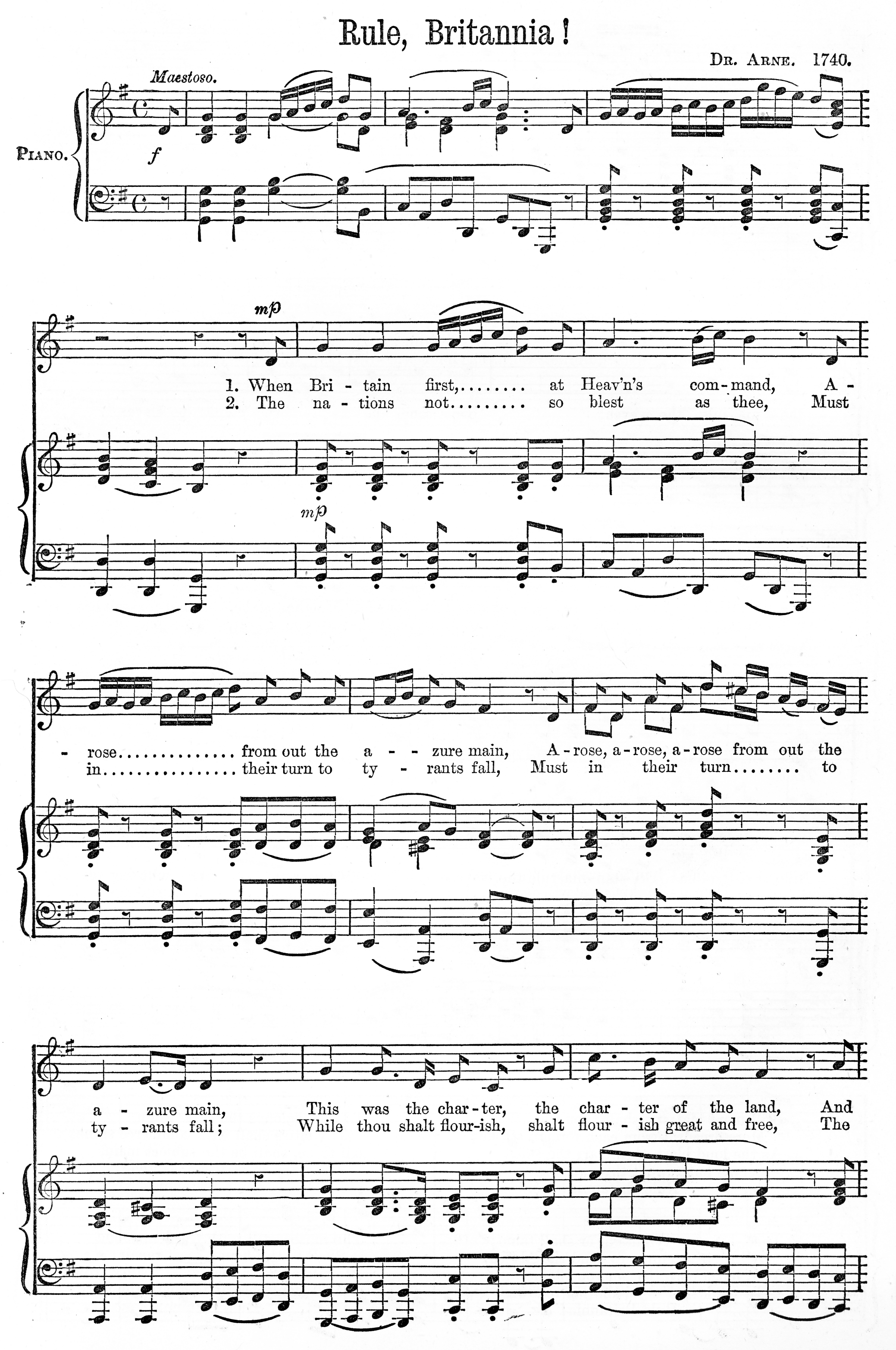|
Heart Of Oak
"Heart of Oak" is the official march of the Royal Navy. It is also the official march of several Commonwealth navies, including the Royal Canadian Navy and the Royal New Zealand Navy. It was also the official march of the Royal Australian Navy, but has now been replaced by the new march, "Royal Australian Navy". The music of ''Heart of Oak'' was written in 1759 by composer William Boyce, the lyrics by actor David Garrick, for Garrick's pantomime ''Harlequin's Invasion'', to which others contributed as well. The pantomime was first performed on New Year's Eve of that year at the Theatre Royal, Drury Lane, London, with Handel soloist Samuel Thomas Champnes singing ''Heart of Oak''. The "wonderful year" referenced in the first verse was the Annus Mirabilis of 1759, during which British forces were victorious in several significant battles: the Battle of Minden on 1 August 1759; the Battle of Lagos on 19 August 1759; the Battle of the Plains of Abraham (outside Quebec City) o ... [...More Info...] [...Related Items...] OR: [Wikipedia] [Google] [Baidu] |
March (music)
A march, as a musical genre, is a piece of music with a strong regular rhythm which in origin was expressly written for marching to and most frequently performed by a military band. In mood, marches range from the moving death march in Wagner's ''Götterdämmerung'' to the brisk military marches of John Philip Sousa and the martial hymns of the late 19th century. Examples of the varied use of the march can be found in Beethoven's ''Eroica'' Symphony, in the Marches Militaires of Franz Schubert, in the Marche funèbre in Chopin's Sonata in B flat minor, the "''Jäger March''" in the by Jean Sibelius, and in the Dead March in Handel's ''Saul''. Characteristics Marches can be written in any time signature, but the most common time signatures are , ('' alla breve'' , although this may refer to 2 time of Johannes Brahms, or ''cut time''), or . However, some modern marches are being written in or time. The modern march tempo is typically around 120 beats per minute. Many f ... [...More Info...] [...Related Items...] OR: [Wikipedia] [Google] [Baidu] |
Seven Years' War
The Seven Years' War (1756–1763) was a global conflict that involved most of the European Great Powers, and was fought primarily in Europe, the Americas, and Asia-Pacific. Other concurrent conflicts include the French and Indian War (1754–1763), the Carnatic Wars and the Anglo-Spanish War (1762–1763). The opposing alliances were led by Great Britain and France respectively, both seeking to establish global pre-eminence at the expense of the other. Along with Spain, France fought Britain both in Europe and overseas with land-based armies and naval forces, while Britain's ally Prussia sought territorial expansion in Europe and consolidation of its power. Long-standing colonial rivalries pitting Britain against France and Spain in North America and the West Indies were fought on a grand scale with consequential results. Prussia sought greater influence in the German states, while Austria wanted to regain Silesia, captured by Prussia in the previous war, and to conta ... [...More Info...] [...Related Items...] OR: [Wikipedia] [Google] [Baidu] |
Peter Ustinov
Sir Peter Alexander Ustinov (born Peter Alexander Freiherr von Ustinov ; 16 April 192128 March 2004) was a British actor, filmmaker and writer. An internationally known raconteur, he was a fixture on television talk shows and lecture circuits for much of his career. An intellectual and diplomat, he held various academic posts and served as a goodwill ambassador for UNICEF and president of the World Federalist Movement. Ustinov was the winner of numerous awards during his life, including two Academy Awards for Best Supporting Actor, Emmy Awards, Golden Globes, and BAFTA Awards for acting, and a Grammy Award for best recording for children, as well as the recipient of governmental honours from, amongst others, the United Kingdom, France, and Germany. He also displayed a unique cultural versatility which frequently earned him the accolade of a Renaissance man. Miklós Rózsa, composer of the music for '' Quo Vadis'' and of numerous concert works, dedicated his String Quartet ... [...More Info...] [...Related Items...] OR: [Wikipedia] [Google] [Baidu] |
YouTube
YouTube is a global online video sharing and social media platform headquartered in San Bruno, California. It was launched on February 14, 2005, by Steve Chen, Chad Hurley, and Jawed Karim. It is owned by Google, and is the second most visited website, after Google Search. YouTube has more than 2.5 billion monthly users who collectively watch more than one billion hours of videos each day. , videos were being uploaded at a rate of more than 500 hours of content per minute. In October 2006, YouTube was bought by Google for $1.65 billion. Google's ownership of YouTube expanded the site's business model, expanding from generating revenue from advertisements alone, to offering paid content such as movies and exclusive content produced by YouTube. It also offers YouTube Premium, a paid subscription option for watching content without ads. YouTube also approved creators to participate in Google's AdSense program, which seeks to generate more revenue for both parties ... [...More Info...] [...Related Items...] OR: [Wikipedia] [Google] [Baidu] |
Jean-Luc Picard
Jean-Luc Picard is a fictional character in the ''Star Trek'' franchise, most often seen as the captain of the Federation starship . Played by Patrick Stewart, Picard has appeared in the television series '' Star Trek: The Next Generation'' (''TNG'') and two episodes of ''Star Trek: Deep Space Nine'', as well as the feature films '' Star Trek Generations'' (1994), '' Star Trek: First Contact'' (1996), '' Star Trek: Insurrection'' (1998), and '' Star Trek: Nemesis'' (2002). He is also featured as the central character in the show '' Star Trek: Picard'' (2020–present). Picard was born in La Barre, France, to Yvette and Maurice Picard. Casting and design After the success of the contemporary ''Star Trek'' feature films, a new ''Star Trek'' television series featuring a new cast was announced on October 10, 1986. ''Star Trek'' creator Gene Roddenberry named Picard for (one or both of) the twin brothers Auguste Piccard and Jean Piccard, 20th-century Swiss scientists. cited in ... [...More Info...] [...Related Items...] OR: [Wikipedia] [Google] [Baidu] |
Doppelgänger
A doppelgänger (), a compound noun formed by combining the two nouns (double) and (walker or goer) (), doppelgaenger or doppelganger is a biologically unrelated look-alike, or a double, of a living person. In fiction and mythology, a doppelgänger is often portrayed as a ghostly or paranormal phenomenon and usually seen as a harbinger of bad luck. Other traditions and stories equate a doppelgänger with an evil twin. In modern times, the term twin stranger is occasionally used. Spelling The word ''doppelganger'' is a loanword from the German. The singular and plural forms are the same in German, but English writers usually prefer the plural "doppelgangers". The first known use, in the slightly different form ''Doppeltgänger'', occurs in the novel ''Siebenkäs'' (1796) by Jean Paul, in which he explains his newly coined word in a footnote; the word also appears in the novel, but with a different meaning. In German, the word is written (as is usual with German nouns) wi ... [...More Info...] [...Related Items...] OR: [Wikipedia] [Google] [Baidu] |
Patrick Stewart
Sir Patrick Stewart (born 13 July 1940) is an English actor who has a career spanning seven decades in various stage productions, television, film and video games. He has been nominated for Olivier, Tony, Golden Globe, Emmy, and Screen Actors Guild Awards. He received a star on the Hollywood Walk of Fame on 16 December 1996. In 2010, he was knighted by Queen Elizabeth II for services to drama. In 1966, Stewart became a member of the Royal Shakespeare Company. Stewart made his Broadway theatre debut in 1971 in a production of ''A Midsummer Night's Dream''. In 1979, he received the Laurence Olivier Award for Best Actor in a Supporting Role for his performance in ''Antony and Cleopatra'' in the West End. His first television role was in the ITV series ''Coronation Street'' in 1967. His first major screen roles were in BBC-broadcast television productions '' Fall of Eagles'' (1974), '' I, Claudius'' (1976), and '' Tinker Tailor Soldier Spy'' (1979). In 2008 he played King Cla ... [...More Info...] [...Related Items...] OR: [Wikipedia] [Google] [Baidu] |
The Next Generation)
''The'' () is a grammatical article in English, denoting persons or things already mentioned, under discussion, implied or otherwise presumed familiar to listeners, readers, or speakers. It is the definite article in English. ''The'' is the most frequently used word in the English language; studies and analyses of texts have found it to account for seven percent of all printed English-language words. It is derived from gendered articles in Old English which combined in Middle English and now has a single form used with pronouns of any gender. The word can be used with both singular and plural nouns, and with a noun that starts with any letter. This is different from many other languages, which have different forms of the definite article for different genders or numbers. Pronunciation In most dialects, "the" is pronounced as (with the voiced dental fricative followed by a schwa) when followed by a consonant sound, and as (homophone of pronoun ''thee'') when followed by a ... [...More Info...] [...Related Items...] OR: [Wikipedia] [Google] [Baidu] |
The Next Generation
Next Generation or Next-Generation may refer to: Publications and literature * ''Next Generation'' (magazine), video game magazine that was made by the now defunct Imagine Media publishing company * Next Generation poets (2004), list of young and middle-aged figures from British poetry Technology Next generation often means a new state of the art: * AMD Next Generation Microarchitecture (other), AMD products * Next Generation Air Transportation System, the Federal Aviation Administration's massive overhaul of the national airspace system * Next Generation Internet (other), various projects intended to drastically increase the speed of the Internet * Next Generation Networking, emerging computer network architectures and technologies * Next-generation lithography, lithography technology slated to replace photolithography beyond the 32 nm node * Next-Generation Secure Computing Base, software architecture designed by Microsoft * NextGen Healthcare Info ... [...More Info...] [...Related Items...] OR: [Wikipedia] [Google] [Baidu] |
University Of Warwick
, mottoeng = Mind moves matter , established = , type = Public research university , endowment = £7.0 million (2021) , budget = £698.2 million (2020–21) , chancellor = Baroness Ashton of Upholland , vice_chancellor = Stuart Croft , students = 27,278 , undergrad = 15,998 , postgrad = 9,799 , city = Coventry , country = England, UK , coor = , campus = Semi-Urban (West Midlands/Warwickshire), The Shard ( WBS), London , colours = Blue, white, purple , free_label = Newspapers and magazines , free = '' The Boar'', ''Perspectives'' , website warwick.ac.uk , logo_size = 180px , administrative_staff = 4,033 , academic_staff = 2,610 , academic_affiliat ... [...More Info...] [...Related Items...] OR: [Wikipedia] [Google] [Baidu] |
Rule, Britannia!
"Rule, Britannia!" is a British patriotic song, originating from the 1740 poem "Rule, Britannia" by James Thomson and set to music by Thomas Arne in the same year. It is most strongly associated with the Royal Navy, but is also used by the British Army. ''Alfred'' The song was originally the final musical number in Thomas Arne's ''Alfred'', a masque about Alfred the Great, co-written by James Thomson and David Mallet and first performed at Cliveden, the country home of Frederick, Prince of Wales, on 1 August 1740. Lyrics This version is taken from ''The Works of James Thomson'' by James Thomson, Published 1763, Vol II, p. 191, which includes the entire text of ''Alfred''. "Married to a Mermaid" In 1751 Mallet re-used the text of "Rule, Britannia!", omitting three of the original six stanzas and adding three new ones by Lord Bolingbroke, to form the repeated chorus of a comic song "Married to a Mermaid". This became extremely popular when Mallet produced his m ... [...More Info...] [...Related Items...] OR: [Wikipedia] [Google] [Baidu] |
Age Of Sail
The Age of Sail is a period that lasted at the latest from the mid-16th (or mid- 15th) to the mid-19th centuries, in which the dominance of sailing ships in global trade and warfare culminated, particularly marked by the introduction of naval artillery, and ultimately reached its highest extent at the advent of the analogue Age of Steam. Enabled by the advances of the related Age of Navigation, it is identified as a distinctive element of the early modern period and the Age of Discovery. Especially in context of the latter, it refers to a more particular Eurocentric Age of Sail, while generally the Age of Sail is the culminating period of a long intercontinental history of sailing. Periodization Like most periodic eras, the definition is inexact but instead serves as a general description. The term is used differently for warships and merchant vessels. Sailing ships are an ancient technology, making far-reaching trade like the ancient spice trade possible. With the ... [...More Info...] [...Related Items...] OR: [Wikipedia] [Google] [Baidu] |




.jpg)

.png)


